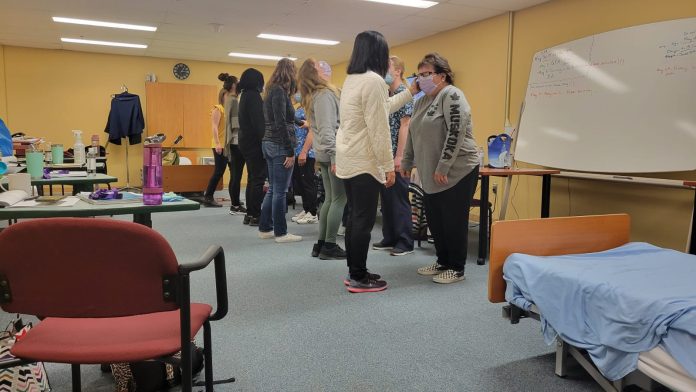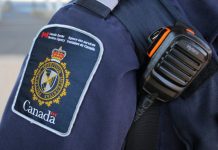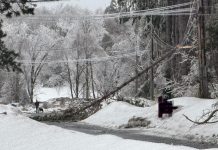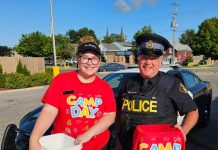
The first graduates of Near North District School Board’s (NNDSB) personal support worker (PSW) program are already filling labour gaps in local health care.
The program, which began in February, graduated 24 students this month and all of them – 100 per cent – are hired or have been offered employment in the field. Lisa Spencer, NNDSB’s Secondary Program Coordinator, SHSM and Experiential Learning says the goal of the program was to support community needs, and to contribute to the development of PSWs ready to start a career in healthcare.
Spencer says the wrap-around support that students received since inquiring about the program has helped develop “confident and proud PSWs” who graduated ready to begin their careers as frontline healthcare workers.
The training that PSW students receive in NNDSB’s living classroom settings is outlined by the Ontario Ministry of Health Long-term Care and the Ontario Ministry of Education. The quality is assured by Ontario Association of Adult and Continuing Education School Board Administrators (CESBA), a provincially funded organization that ensures adult and continuing education programs are accessible, affordable and support student success.
The training, she says, “aligns with every other program in the province, and students have the experience and credentials of every other PSW in Ontario.”
The living classroom, however, offers what many believe is an advantage in training. Spencer says having the ability to learn on the floor means that students are instructed in the classroom, and their education is deepened by what they learn from the PSWs and nurses who work there.
In Parry Sound, both instructor Nicole Robinson and Belvedere Heights administrator Kami Johnson say the ability to learn in class then practice on the floor enriches the learning opportunities for students and enhances the relationships between students and staff, and students and residents.
Robinson started her career in health care as a PSW and is now a registered practical nurse at Belvedere Heights. She can’t say enough about the increased learning opportunities provided to NNDSB PSW students via the living classroom.
For example, the students were able to provide palliative care to a resident, and they supplemented in-class learning by practicing and by watching the staff.
Robinson says her co-workers are excited to have the students in the building and will text her to let her know when there are learning opportunities; the students are invited to watch and participate in processes common in long-term care. The students are also invited to Belvedere Heights training sessions, so they are learning about new techniques and equipment.
“Hands down, this is the best way to learn,” enthuses Robinson. “The staff embrace my students and go the extra mile for them. They have been welcoming because they could be their next co-workers.”
Johnson echoes that sentiment. “I am blown away by the benefits of the living classroom,” she says, adding that there has been a huge positive affect on residents.
The addition of students to floor means that residents have increased numbers of interactions and relationships, and for staff, it means they get to know their future colleagues. Johnson says she has preceptors knocking on her door offering to support the PSW students.
The quality of the work of the 10 students who graduated from the Parry Sound program is excellent, says Johnson. “They are confident and competent,” she says. The students’ work has been a great addition to the team, and she says “a consistent team makes for improved resident outcomes and better quality of life. This is a critical program.”
The PSW program is but one example of the outcomes being achieved through the board’s multi-year strategic plan. In this instance, the focus on excellence in relationships and excellence in innovation has resulted in outstanding student success that is benefitting the communities where we work and live.
Johnson says she is excited continue supporting the PSW program, and also welcomes secondary school students who may want to try a co-operative education placement at the home.
The program will be running in Parry Sound and Mattawa in September, and it is the board’s intention to also run the PSW program in North Bay and West Nipissing. For more information on the program and intake requirements, visit the PSW page of NNDSB’s website.







